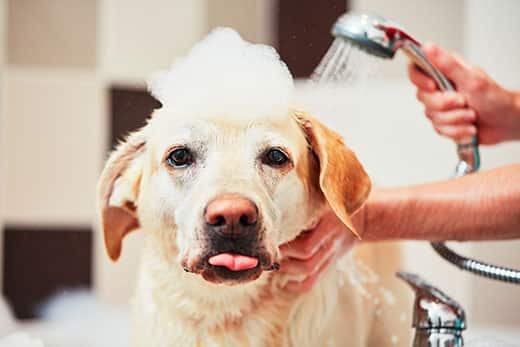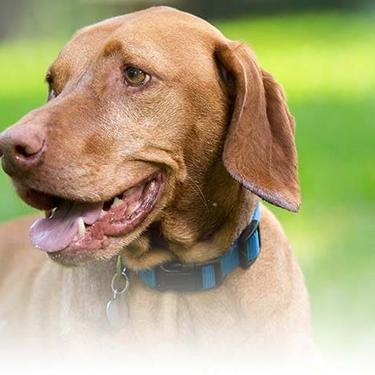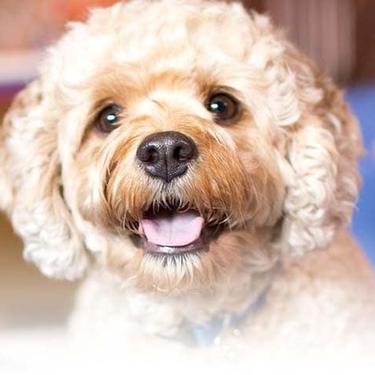
-
Find the right food for your pet
Take this quiz to see which food may be the best for your furry friend.
Find the right food for your pet
Take this quiz to see which food may be the best for your furry friend.
Featured products
 Adult 7+ Perfect Digestion Chicken, Whole Oats & Brown Rice Recipe Dog Food
Adult 7+ Perfect Digestion Chicken, Whole Oats & Brown Rice Recipe Dog FoodScience Diet's breakthrough nutrition supports ultimate digestive well-being & healthy microbiome for dogs age 7+
Shop Now Adult Healthy Cuisine Roasted Chicken, Carrots & Spinach Stew Dog Food
Adult Healthy Cuisine Roasted Chicken, Carrots & Spinach Stew Dog FoodDelicious roasted chicken paired with tender vegetables in a succulent stew
Shop Now Small & Mini Savory Stew with Chicken & Vegetables Dog Food
Small & Mini Savory Stew with Chicken & Vegetables Dog FoodA delicious complement to the nutrition of Science Diet Small & Mini 7+ dog food
Shop NowFeatured products
 Adult 7+ Tender Tuna Dinner Cat Food
Adult 7+ Tender Tuna Dinner Cat FoodWith delicious chunks in a decadent gravy
Shop Now Adult Savory Entrée Can Variety Pack Cat Food
Adult Savory Entrée Can Variety Pack Cat FoodPrecisely balanced nutrition with the delicious taste of savory minced chicken to help fuel the energy needs of cats during the prime of their life
Shop Now Adult 7+ Senior Vitality Chicken & Vegetable Stew Cat Food
Adult 7+ Senior Vitality Chicken & Vegetable Stew Cat FoodImproves Everyday Ability to Get Up & Go
Shop Now -
Dog
- Dog Tips & Articles
-
Health Category
- Weight
- Food & Environmental Sensitivities
- Urinary
- Digestive
- Joint
- Kidney
-
Life Stage
- Puppy Nutrition
- Adult Nutrition
- Senior Nutrition
Cat
- Cat Tips & Articles
-
Health Category
- Weight
- Skin & Food Sensitivities
- Urinary
- Digestive
- Kidney
-
Life Stage
- Kitten Nutrition
- Adult Nutrition
Featured articles
 Does My Pet Hate Me?
Does My Pet Hate Me?Learn tips for bonding with your pet if you've ever thought, 'My dog doesn't like me, or 'Why do I have a standoffish cat?'
Read More Why Are Dogs and Cats So Cute?
Why Are Dogs and Cats So Cute?If waggy puppy dog tails and furry kitten yawns make you swoon, you're not alone. Why are cats so cute? And, dogs too! Let's find out!
Read More Do Dogs and Cats have Belly Buttons?
Do Dogs and Cats have Belly Buttons?Learn whether cats & dogs have belly buttons like humans, what the function is, and if there are any health concerns associated with it.
Read More -


Dogs eat dead things. Dogs eat slimy things. Dogs eat ... well, almost anything! When considering the household items that could be problematic for your pet, you might've overlooked one of the most common ones: soap. Because, we as humans, like to add pleasant smells to our soaps, your dog might think they are a tasty treat. If your dog ate soap, you might be worried. Will they get sick? Is soap poisonous?
If your dog ate a bar of soap or licked some liquid soap, you're justified in being a little concerned — but there's no need to panic. Read on to learn the facts, including what soap is actually made of, how eating soap can affect your dog's health and how to know when you should bring your pup to the veterinarian.
What's in Soap?
While every soap is slightly different, most liquid soaps contain water, oils (usually cocamide DEA, monoethanolamine and/or glycerin), fragrances and dyes, among other ingredients, such as sodium lauryl sulfate, parabens, triclosan and cocamidopropyl betaine.
Bar soap and soaps labeled "natural" have similar ingredients. Some soaps may also contain essential oils or dried herbs.
Your Dog Ate Soap: Should You Be Worried?
Some of the ingredients commonly used in soaps are harmful to humans if ingested. However, it can be difficult to know exactly how dangerous it is for dogs to ingest soap.
Soaps containing essential oils can be especially harmful to a dog's health. Pet Poison Helpline explains that pine oil, a common additive in disinfectants and cleaning products, can cause severe side effects in dogs who ingest it. Consuming soap that has pine oil in it can cause vomiting, skin irritation, drooling, weakness, loss of muscle control and can potentially harm their kidneys and liver.
Soaps may also cause chemical burns in your dog's mouth, esophagus and stomach. Additionally, ingesting a large chunk of soap may cause a blockage in your pet.



Tasty Tips
Signs to Watch For
If you think your dog ate soap, immediately take the soap away from them, flush their mouth out with water and contact your veterinarian. They may suggest monitoring them for the next few hours, or they may recommend bringing them to the clinic right away if they exhibit any abnormal behavior.
According to Wag!, here are the signs to look out for:
- Drooling
- Licking more than normal
- Frequent swallowing
- Pawing at the face
- Vomiting
- Diarrhea
What to Expect at the Vet
If you bring your dog to the vet, they'll conduct a physical exam. Bring the packaging or ingredient list for the soap that your dog ate, if you have it — this will help the vet understand what they're dealing with and can help guide treatment. They may need to perform an endoscopy or take an X-ray to get a full picture of your dog's condition. They may also recommend hospitalizing your dog to monitor them. Depending on how long ago you saw your dog eat the soap may also influence their course of treatment.
If your dog ate a bar of soap, don't panic. Take any remaining soap away from them and get them to the vet if your vet recommends bringing them in. Most importantly, remember to keep all soap products in areas that are out of reach for your curious pet. That way, you can limit the chances of a repeat event and help keep your pooch safe and healthy.


Erin Ollila believes in the power of words and how a message can inform—and even transform—its intended audience. Her writing can be found all over the internet and in print, and includes interviews, ghostwriting, blog posts, and creative nonfiction. Erin is a geek for SEO and all things social media. She graduated from Fairfield University with an M.F.A. in Creative Writing. Reach out to her on Twitter @ReinventingErin or learn more about her at http://erinollila.com.
Related products

Science Diet's breakthrough nutrition supports ultimate digestive well-being & healthy microbiome for dogs age 7+

A delicious complement to the nutrition of Science Diet Small & Mini 7+ dog food

Delicious braised beef paired with tender vegetables in a succulent stew

Delicious roasted chicken paired with tender vegetables in a succulent stew
Related articles

Large and giant breed puppies have different nutritional needs than other dogs. Learn how to provide the special care they need to grow up big and strong.

Your dog's coat and skin are a big part of your dog's overall health. Ensure you keep your dog's coat healthy, by following these simple tips.

Hill's Science Diet Small & Toy Breed dog foods are designed to meet the nutritional needs for your small dog at every life stage. Learn more here.

Learn about choosing the right food for your mature or older dog, ensuring he receives the correct balance of nutrition.

Put your dog on a diet without them knowing
Our low calorie formula helps you control your dog's weight. It's packed with high-quality protein for building lean muscles, and made with purposeful ingredients for a flavorful, nutritious meal. Clinically proven antioxidants, Vitamin C+E, help promote a healthy immune system.
Put your dog on a diet without them knowing
Our low calorie formula helps you control your dog's weight. It's packed with high-quality protein for building lean muscles, and made with purposeful ingredients for a flavorful, nutritious meal. Clinically proven antioxidants, Vitamin C+E, help promote a healthy immune system.

